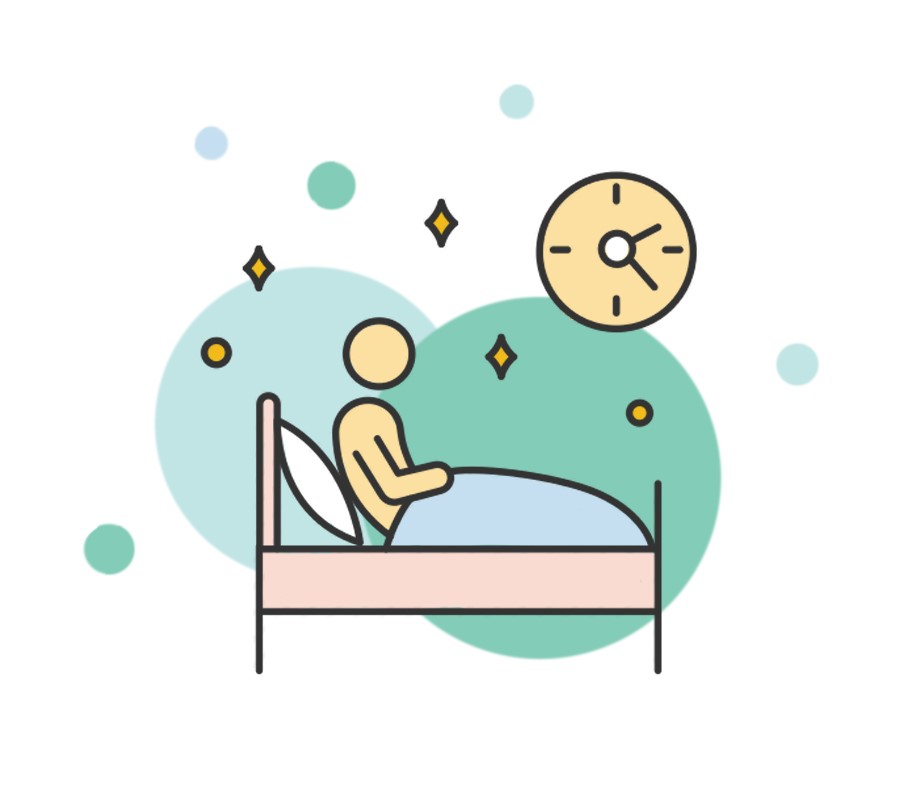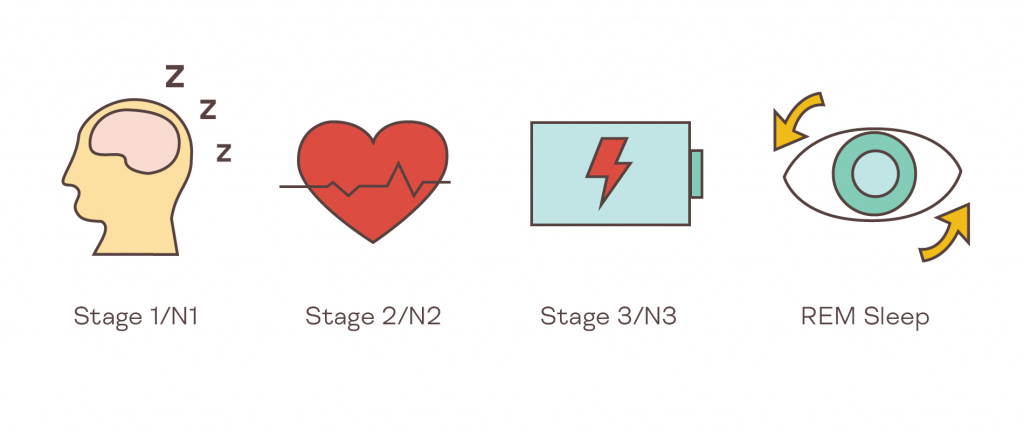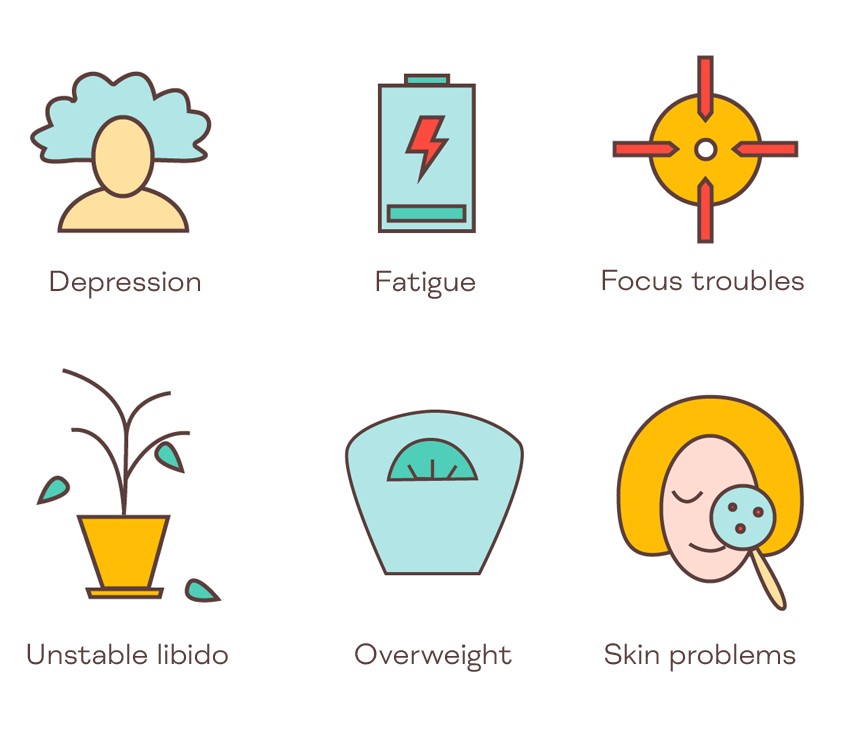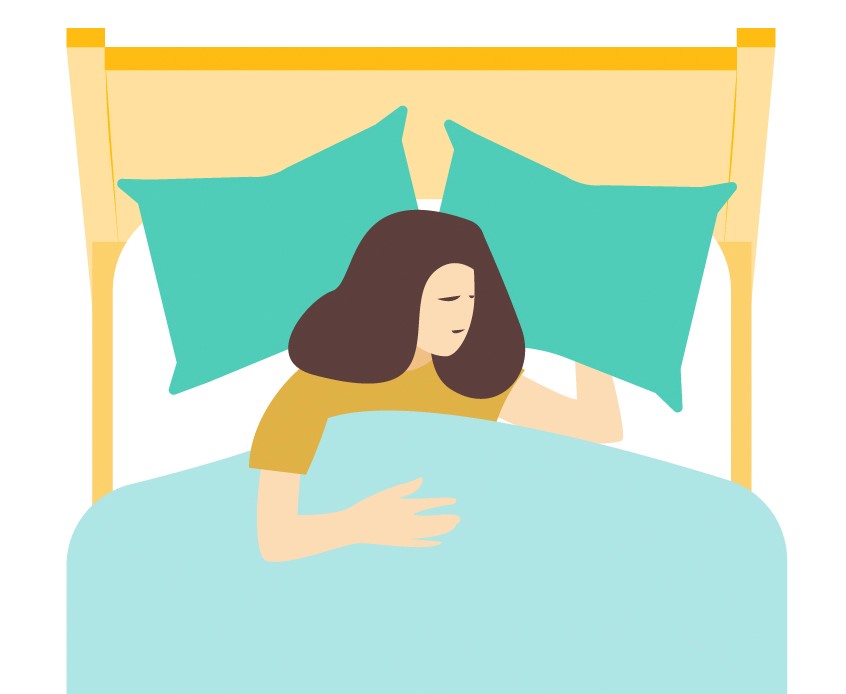How Much Sleep Do I Need
Let's Discuss How Much Sleep Each Human Being Needs

It's no secret that some days we can easily wake up before the alarm clock, and other days we can curse the whole world and finish our last seconds of sleep. It doesn't matter if you sleep the same number of hours every day. You may feel completely different every morning.
So, let's discuss. How much sleep do you really need? The answer to this question lies in what are called sleep cycles. These are the so-called stages that our body lives through over the course of the night.
In order to understand how many hours of sleep do you need, we need to optimize our sleep cycles, taking into account your age as well as your personal schedule and features. Do you want to know how much sleep you need each day? Then keep reading our article to the end!
How Much Sleep do You Need by Age?
The amount of sleep we need varies depending on your age. As we develop, our bodies need much more sleep for growth and full recovery. The older we get, the less sleep we need. For your convenience, here is a chart below that shows the correspondence between your age and the amount of sleep you need.
|
Your age (Your stage of life) |
Sleep recommended hours by age |
|
From 0 to 3 months (Newborns) |
From 14 to 17 hours |
|
From 4 to 11 months (Infants) |
From 12 to 16 hours |
|
From 1 to 2 years (Toddlers) |
From 11 to 14 hours |
|
From 3 to 5 years (Young Children) |
From 10 to 13 hours |
|
From 6 to 12 years (School Children) |
From 9 to 12 hours |
|
From 13 to 18 years (Teenagers) |
From 8 to 10 hours |
|
From 18 to 25 years (Young Adults) |
From 7 to 9 hours |
|
From 25 to 64 years (Adults) |
From 7 to 9 hours |
|
65 years and up (Seniors) |
From 7 to 8 hours |
The number of sleep hours it takes to feel rested can vary considerably from person to person. Some people need nine hours, others five or six. In order to determine how much sleep you need, you need to assess how well you feel when you are awake.
What are the stages of sleep?
We have prepared a small table for you so that you can find out what the stages of sleep are, how long they take, and how they are called.
The Sleep Cycle Description

|
The 1st Stage |
The 2nd Stage |
The 3rd Stage |
The 4th Stage |
|
From 5 to 10 minutes |
From 10 to 25 minutes |
From 20 to 40 minutes |
From 10 to 60 minutes |
|
From 4 to 5 hours throughout the night |
From 1,5 to 2 hours throughout the night |
||
While you sleep, your body goes through several cycles. Each of these cycles is divided into what are called phases. These phases are called N1, N2, N3 and REM sleep. Each of these cycles takes an average of 90 minutes. Based on the above, the length of your sleep can be coordinated with the number of cycles you can complete.
Here's an example. We have already told you that 7 to 9 hours of sleep is recommended for adults. If we talk about sleep cycles, then 7.5 hours would equal 5 cycles, and 9 hours would equal 6 cycles.
Stage 1/N1: This stage lasts for a very short period of time. It is also called the «transit stage». At this point, you may feel as if you are still awake, just dozing off. This is because your brain is beginning to function more slowly and you are gradually transitioning into sleep mode.
Stage 2/N2: When you reach this phase of sleep, certain changes occur. Your muscles relax, your eyes stop moving. You practically stop responding to external stimuli. Your breathing and heartbeat become slower. At first this stage does not last long at all, from 10 to 25 minutes. As the cycles progress, such a stage can become much longer during the night.
Stage 3/N3: Deep sleep is always Stage 3 sleep. It is very important because in this stage the body relaxes to the maximum and goes into what is called restorative sleep, which helps your body cells, as well as your nervous system, to regenerate as much as possible. The described stage usually lasts no more than 40 minutes. However, such a stage is often shortened throughout the night. This is due to the fact that you spend the most time in REM sleep.
REM-sleep: Such sleep is always the final stage of sleep. At this point, a number of very important changes occur in the body. These include such phenomena as rapid breathing, increased brain activity, relatively rapid eye movement, and a strong increase in heart rate. A characteristic feature of such sleep is that it is often accompanied by so-called temporary paralysis, which is a protective reaction of the body.
How many hours of REM sleep do you need?
As a general rule, REM sleep is no more than 25% of your total sleep for the night. If you convert that to hours, it's about 1.5-2 hours for an adult. The amount of time you spend in REM sleep gradually increases over the course of the night. The very first cycle of such sleep usually occurs about 90 minutes after falling asleep, and you can go through about 5 cycles of such sleep during the night.
What are the signs that you are not getting enough sleep?

unstable psychological state, depression
fatigue
trouble focusing on anything
skin problems
changes in appetite, changes in taste
problems with libido: instability, absence
You may be showing signs of sleep deprivation, even if you don't feel obviously tired. Because sleep is an essential part of your health, a lack of sleep can seriously affect your physical well-being, even in the long run. Here are a few signs that you are not spending enough time sleeping, which can threaten your physical condition and your overall health.
Unstable psychological state, depression: When you don't get enough sleep, it can increase feelings of irritation, provoke negative reactions to events, and even lead to depression. Also, when you go to bed in a bad mood or with feelings of anxiety, your quality of sleep can be severely impaired.
Fatigue: The term "fatigue" is often used synonymously with "tiredness". However, there is a significant difference, and you should be aware of it. Fatigue is often used when talking about certain health problems. When the term tiredness is used, it tends to be akin to sleepiness. There are times when you feel drowsy, but still get enough hours of sleep. If this is the case, we recommend that you talk to your doctors and find out if everything is okay with your health.
Trouble Focusing on Anything: There are times during the day when you don't perceive things well. One weighty reason is a lack of sleep. It can make it difficult for you to concentrate and can also have a negative effect on your performance, your ability to make informed decisions, and the adequacy of your perception.
Skin Problems: The condition of your skin is also a reflection of the quality of your sleep. If you don't get enough sleep, it can affect your hormones. Such a factor will obviously affect the condition of your skin, from the appearance of dark circles under the eyes to the increase of various acne and rashes.
Сhanges in Appetite, Changes in Taste: Much has been written on the topic of overweight and its correlation to sleep. Numerous studies suggest that people who sleep less than six hours for long periods of time are more likely to be overweight. Is six hours of sleep enough? Normally, no! If you stand on the scale and find that you have started to gain weight - think twice! It's possible that sleep deprivation may be the reason you're overweight.
Problems with Libido: Instability, Absence: If you have traced that you are experiencing fluctuations in your libido, you should know that one of the causes may be serious fatigue. Pay attention to your sleep. This may be the main, and sometimes the only cause of your libido fluctuations, and all you need to do is normalize your sleep patterns.
How to Get a Better Night's Sleep: Practical Tips

If you often have to suffer from lack of sleep, you can't discover the objective cause and find a solution on your own. There is no magic pill for falling asleep momentarily. Or at least we don't know about it!
We invite you to read these tips so that you can always feel rested and wake up alert and rested.
You should organize your sleep schedule: If you go to sleep gradually, it will help you adjust your internal clock. In this way, you will feel awake, rested and full of energy every day. You will feel when you need to go to bed and the problem of restless nights will go on its own.
Take a nap, but no more than 20 minutes: Sleep is a very useful tool for getting your strength back. If you feel tired, you can lie down to rest. However, make sure that your sleep time does not exceed 20 minutes. This way you can wake up rested rather than broken.
Try to sleep in a cool room: If the room is too hot or too cold, you will be uncomfortable. The fact is that our body temperature drops at night. Try to keep the room to sleep at an optimal comfortable temperature, which is about 60-67 degrees Fahrenheit.
Try not to drink too many drinks containing caffeine: Caffeine can be beneficial at the beginning of the day. However, coffee drinkers need to be careful about drinking coffee after 6 p.m. It can have a negative effect on the quality of your sleep at night. Our recommendation is to avoid consuming large amounts of caffeine in the afternoon. This will help ensure that you get a good night's sleep throughout the night.
Turn off all devices (phone, computer, laptop, TV): The fact is that technical devices emit blue light, which gives our body a certain signal - it's time to wake up! In order to help yourself calm down before going to bed, we recommend that you turn off appliances at least an hour before you go to bed.
How to Sleep Well: FAQs
How can you sleep eight hours in four hours?
Unfortunately, sometimes it's impossible to afford as many hours of sleep as we need. However, you can use our simple tips to get the most out of even four hours of sleep. First of all, you need to turn off all electrical devices to minimize exposure to the blue light they emit, maintain an optimal temperature for sleep (about 60-67 degrees Fahrenheit), and try to avoid excessive emotion and talking, which can excite the central nervous system.
Is it okay to sleep five hours?
Of course, sleeping for five hours is not okay. Nevertheless, sometimes we have to settle for that as well. However, it is worth noting that such sleep can have a negative effect on the functioning of the central nervous system in the long run. There are certain recommendations, based on research, that most adults should get at least seven hours of sleep a night.
Can you adjust to getting less sleep?
Many of you may have tried to adjust to less sleep in the long run. Yes, of course, we don't deny the fact that you can sleep less over a long enough period of time. However, the fact that adults are most productive when they sleep 7 to 9 hours has been scientifically proven. It also happens that you can try to sleep "in advance" before some important events, but, for the most part, it is impossible to get enough sleep in advance on a regular basis.
Is it possible to oversleep?
How many hours of sleep does an adult need? Sleeping more than nine hours per night on a regular basis can be defined as oversleeping. Occasionally, this is a normal occurrence. However, consistently staying asleep more than 9 hours may be the result of some health problem: depression, a sleep disorder, or even apnea or bruxism.
If I sleep more than 12 hours, is it normal?
As a general rule, sleeping more than 12 hours is not recommended for adults. However, there are exceptions to the rules. Mostly, such long naps are caused by a lack of normal sleep and rest the previous nights. Of course, we all like to lie in bed on weekends. However, a systematic 12-hour weekend nap probably signals to you that you regularly don't get enough sleep during the week.
Let’s Sum It All Up!
So let's summarize, how much sleep do we need? Basically, it all depends on the circumstances. A child usually needs more sleep than an adult. However, the amount of sleep for each person is strictly individual. In order to develop an optimal sleep schedule, follow your habits, your body's reaction and the amount of sleep you need in order to get a good night's sleep.
You also need good bedding, a quality mattress, pillows and other bedding to get a good night's sleep. Our online store has a huge selection - visit it and the quality of sleep will improve with your first purchase.